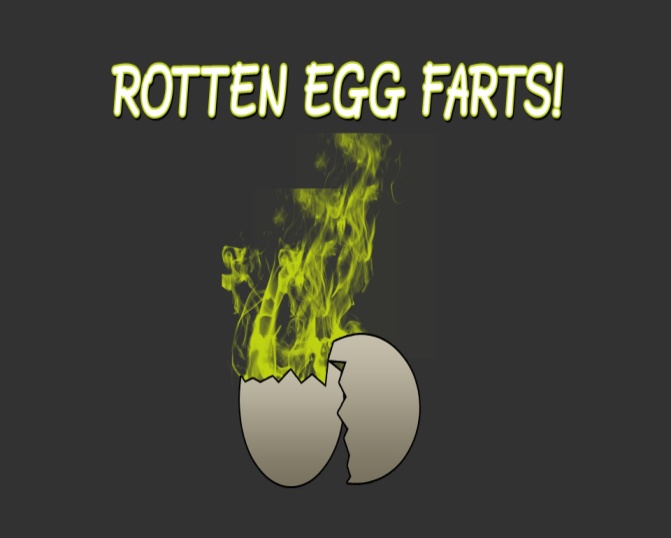The food you eat will have a huge impact on your overall health. It will also determine how you feel throughout the day, and it can also have an impact on how smelly your farts become. Farts are certainly one of the most loathed bodily functions, but they usually indicate that your digestive system is working just fine. It holds true even if your farts smell quite like rotten eggs. While smelly farts may make you unpopular in public gatherings, they usually do not indicate serious underlying issues.

Why Do My Farts Smell Like Rotten Eggs?
If you wonder why your farts smell like rotten eggs, you may have to look into your diet for answers. You are likely to have this issue if you eat food that contains sulfur. Your body breaks down these foods and produces a gas called hydrogen sulfide. You may probably be experiencing this problem after eating lentils, prunes, apples, onions, and Brussels sprouts because they all have sulfur in them.
It is important to note that some people produce hydrogen sulfide after their bodies break down food, while others are methane producers. If you are a hydrogen sulfide producer, your flatulence is likely to smell like rotten eggs. It always comes down to what you eat and how much. You may actually find that the smell of your farts look quite similar to what you experience when you visit natural springs that emit sulfurous gasses.
Is It Bad?
Why do my farts smell like rotten eggs? That is because of sulfur. The question is: Should you worry about this situation? Does this indicate anything serious? In most cases, having smelly farts is not bad, as it depends on what you eat and what bacteria in your gut are doing. Foul smell may just mean that the carbs you have just consumed have not been absorbed properly and are therefore fermented.
Interestingly, your farts are likely to smell worse if your diet mostly includes healthy food. You will have an urge to pass gas after eating foods such as Brussels sprouts, broccoli, and quinoa. These foods are healthy and provide you with loads of fiber, but you may still have to deal with that unwanted stench. You will also have smelly farts when you eat red meat as well as plant-based proteins because they are high in sulfur. Increasing your intake of protein is also going to make your farts noxious, but it is certainly nothing you need to worry about.
When Smelly Fart Is Not Normal?
While it is true that smelly farts are unfortunate and unwelcome, they usually do not indicate anything serious. However, if you are a bit concerned, you may want to eliminate sulfur-laden foods from your diet for a while to see how it changes your flatulence. If you have regular bowel movements but your farts still smell like rotten eggs, you might want to talk to your doctor to make a correct diagnosis. This is especially true if you have other symptoms as well, such as vomiting, nausea, weight loss and abdominal pain.
Why do my farts smell like rotten eggs? You ask. A number of medical conditions can make your flatulence turn noxious. For instance:
- Carb malabsorption: Your farts will smell like rotten eggs when you experience carb malabsorption. However, you will also experience bloating and abdominal pain. It can become severe and lead to a condition called celiac disease, which causes vitamin deficiency and abdominal pain. You can treat your condition by eliminating gluten from your diet, which is usually present in barley, wheat, and rye products, such as flour. Reducing your intake of gluten will significantly reduce the frequency of passing gas.
- Lactose intolerance: Dairy products contain a sugar called lactose. Your body needs to have an enzyme called lactase to break down lactose. Some people do not have this enzyme, leaving dairy products undigested in your digestive system. Bacteria will start feeding on it and produce odor. You may want to eliminate dairy products from your diet to see if it improves your flatulence and bloating.
- Digestive tract infections: There are healthy and unhealthy bacteria in your digestive tract. However, some viruses and bacteria can infect the lining of the digestive tract. You can contract these infections when traveling to other parts of the world. In case of an infection, you are likely to experience other symptoms as well, such as diarrhea, abdominal pain, and fever.
